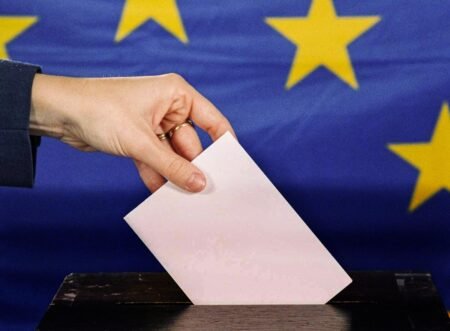(BRUSSELS) – EU competition authorities are looking to target their enforcement of EU antitrust rules at e-commerce markets, following publication of the Commission’s final report on the e-commerce sector inquiry.
Competition Commissioner Margrethe Vestager said the report confirmed that “certain practices by companies in e-commerce markets may restrict competition by unduly limiting how products are distributed throughout the EU.” She said the restrictions could “limit consumer choice and prevent lower prices online.”
The aim of the sector inquiry was to allow the Commission to identify possible competition concerns in European e-commerce markets.
The Commission would now be better able to target EU antitrust enforcement in e-commerce markets, the EU executive said in its report, and this includes “opening further antitrust investigations.”
The Commission opened three separate probes in February 2017 into holiday accommodation, PC video games distribution and consumer electronics pricing practices that may limit competition.
This prompted companies to review their commercial practices. The Commission says it is aware and welcomes that companies in the clothing industry Mango (belonging to Punto Fa), Oysho and Pull & Bear (both belonging to Inditex), and Dorothy Perkins and Topman (both belonging to Arcadia) but also other retail sectors (the coffee machine producer De Longhi and photo equipment manufacturer Manfrotto) have reviewed their practices.
Regarding consumer goods, the report confirmed that growth of e-commerce has had a significant impact on companies’ distribution strategies and consumer behaviour. The final results of the sector inquiry highlight the following market trends:
- A large proportion of manufacturers decided over the last ten years to sell their products directly to consumers through their own online retail shops, thereby competing increasingly with their distributors.
- Increased use of selective distribution systems, where the products can only be sold by pre-selected authorised sellers, allows manufacturers to better control their distribution networks, in particular in terms of the quality of distribution but also price.
- Increased use of contractual restrictions to better control product distribution. Depending on the business model and strategy, such restrictions may take various forms, such as pricing restrictions, marketplace (platform) bans, restrictions on the use of price comparison tools and exclusion of pure online players from distribution networks.
While the Commission concedes some of these practices may be justified, it says others may prevent consumers from benefiting from greater product choice and lower prices and could warrant Commission action to ensure compliance with EU competition rules.
On digital content, the report says results of the sector inquiry confirm that the availability of licences from content copyright holders is essential for digital content providers and a key factor that determines the level of competition in the market.
The report points to certain licensing practices which may make it more difficult for new online business models and services to emerge. Any assessment of such licensing practices under the EU competition rules has however to consider the characteristics of the content industry.
One of the key findings of the sector inquiry is that almost 60% of digital content providers who participated in the inquiry have contractually agreed with right holders to “geo-block”.
Content providers can engage in geo-blocking for objectively justified reasons, such as to deal with VAT issues or certain public interest legal provisions. The Commission has already proposed legislation to ensure that consumers seeking to buy products and services in another EU country, be it online or in person, are not discriminated against in terms of access to prices, sales or payment conditions, unless this is objectively justified for a specific reason.
The Commission has also made proposals on the modernisation of the EU copyright rules to notably increase the access to audiovisual content online across borders, while taking into account the important role that territorial exploitation of audiovisual content plays for the financing model of the European audiovisual sector. Both proposals are currently being negotiated with the European Parliament and the Council.
Any competition enforcement in relation to geo-blocking would have to be based on a case specific assessment, it says, which would also include an analysis of potential justifications for restrictions that have been identified.
The Commission launched the e-commerce sector inquiry in May 2015, gathering evidence from nearly 1,900 companies operating in e-commerce of consumer goods and digital content and analysed around 8,000 distribution and license contracts.
Final report on the E-commerce Sector Inquiry








